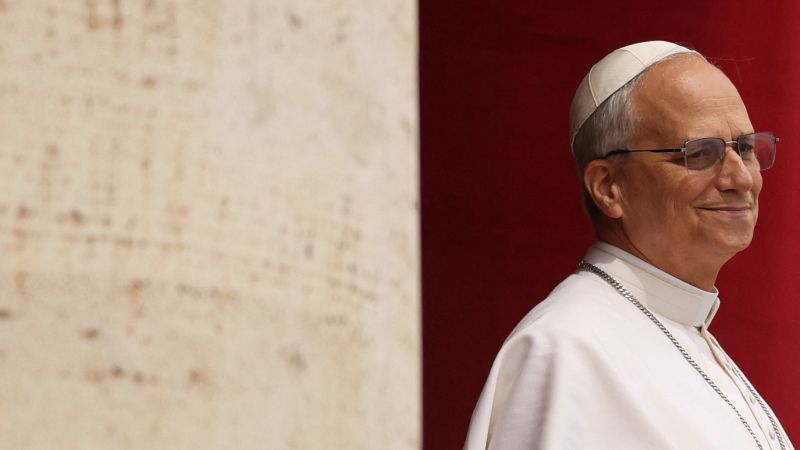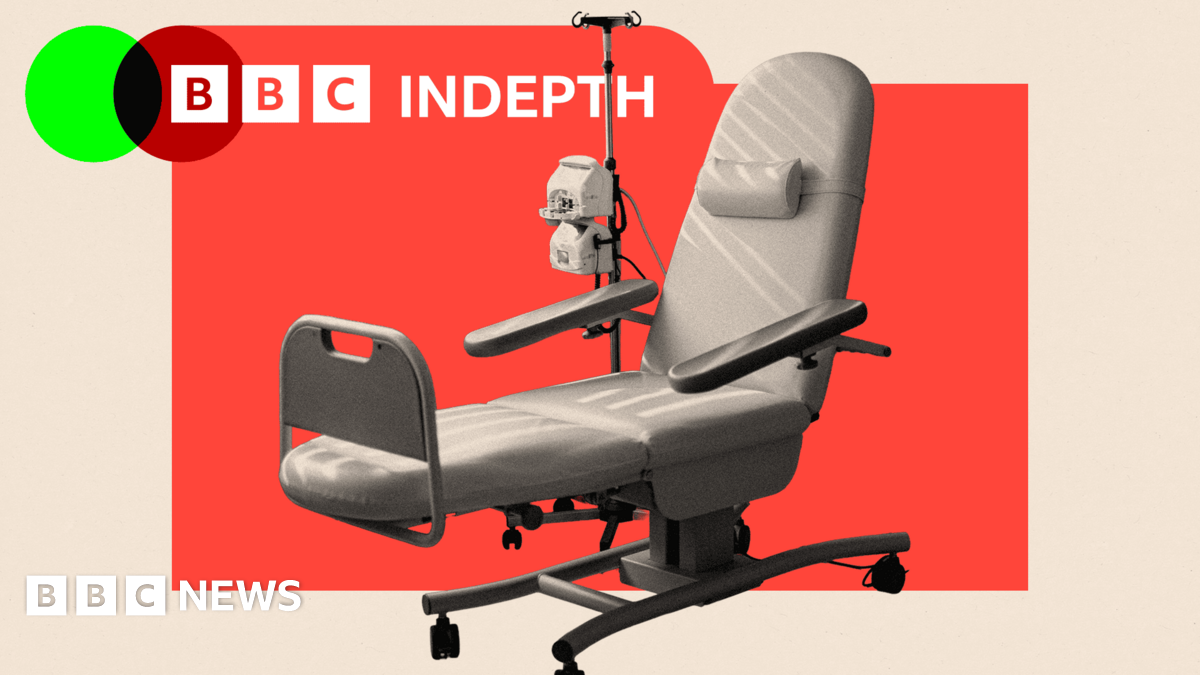Understanding Pope Leo XIII: His Role As Reformer And Unifier

Welcome to your ultimate source for breaking news, trending updates, and in-depth stories from around the world. Whether it's politics, technology, entertainment, sports, or lifestyle, we bring you real-time updates that keep you informed and ahead of the curve.
Our team works tirelessly to ensure you never miss a moment. From the latest developments in global events to the most talked-about topics on social media, our news platform is designed to deliver accurate and timely information, all in one place.
Stay in the know and join thousands of readers who trust us for reliable, up-to-date content. Explore our expertly curated articles and dive deeper into the stories that matter to you. Visit Best Website now and be part of the conversation. Don't miss out on the headlines that shape our world!
Table of Contents
Understanding Pope Leo XIII: His Role as Reformer and Unifier
Pope Leo XIII (1878-1903) remains a significant figure in Catholic history, remembered not only for his lengthy papacy but also for his pivotal role in navigating the Church through a period of immense social and political upheaval. His legacy is complex, marked by both conservative stances and groundbreaking reforms that shaped the Catholic Church's approach to the modern world. This article delves into the multifaceted life and impact of Pope Leo XIII, exploring his contributions as a reformer and unifier.
A Time of Turmoil: The Context of Leo XIII's Papacy
The late 19th century was a time of profound change. The rise of industrialization, nationalism, and secularism challenged the traditional authority of the Church. Scientific advancements spurred debates about faith and reason, while socialist and Marxist ideologies posed direct threats to the established social order. Within the Catholic Church itself, there were internal divisions and differing opinions on how best to address these challenges. Leo XIII inherited a Church grappling with these complexities.
Leo XIII: The Reformer
Leo XIII is celebrated for his remarkable intellectual agility and his willingness to engage with the pressing issues of his time. His most significant reforms included:
-
Rerum Novarum (1891): This landmark encyclical addressed the social question, condemning both unchecked capitalism and socialism. It advocated for a "just wage," the right to form unions, and the importance of social justice, setting the stage for Catholic social teaching. It's considered a foundational document for modern Catholic social thought and is still studied extensively today. [Link to Rerum Novarum text (Vatican website)]
-
Modernist Engagement (with caution): While firmly rooted in traditional Catholic doctrine, Leo XIII recognized the need for the Church to engage with modern scholarship and intellectual currents. He encouraged the study of scripture and the development of Catholic education systems, adapting to the evolving needs of a changing world. However, he also remained vigilant against theological modernism which he perceived as a threat to orthodox belief.
-
Promoting ecumenism (within limits): While full ecumenical union remained a distant goal, Leo XIII fostered a spirit of greater understanding and dialogue with other Christian denominations. His efforts to improve relations with the Eastern Orthodox Church are noteworthy examples of this cautious approach to ecumenism.
Leo XIII: The Unifier
Beyond his reforms, Leo XIII played a vital role in unifying the Catholic Church during a period of significant internal division. His leadership fostered a sense of stability and helped to navigate conflicts.
-
Strengthening Papal Authority: Leo XIII skillfully reinforced the authority of the papacy, navigating the complex political landscape and maintaining the Church's independence from secular powers. His diplomatic efforts were crucial in solidifying the Church's position in the face of increasing secularization.
-
Addressing Internal Conflicts: He skillfully mediated internal disputes and disagreements within the Church hierarchy, contributing to a stronger sense of unity and shared purpose.
A Lasting Legacy
Pope Leo XIII's legacy extends far beyond his papacy. His encyclicals continue to be studied and cited, his social teachings remain highly influential, and his commitment to bridging the gap between faith and the modern world serves as a model for future Church leaders. His approach, a delicate balance between upholding tradition and adapting to change, continues to inspire discussion and debate within the Catholic Church and beyond.
Further Exploration:
For those interested in learning more, several biographies and scholarly works explore Leo XIII's life and papacy in greater detail. Researching his encyclicals and writings provides invaluable insights into his thought and actions. Understanding his context and the challenges he faced allows for a deeper appreciation of his enduring legacy. What are your thoughts on Leo XIII's approach to modernizing the Catholic Church? Share your comments below.

Thank you for visiting our website, your trusted source for the latest updates and in-depth coverage on Understanding Pope Leo XIII: His Role As Reformer And Unifier. We're committed to keeping you informed with timely and accurate information to meet your curiosity and needs.
If you have any questions, suggestions, or feedback, we'd love to hear from you. Your insights are valuable to us and help us improve to serve you better. Feel free to reach out through our contact page.
Don't forget to bookmark our website and check back regularly for the latest headlines and trending topics. See you next time, and thank you for being part of our growing community!
Featured Posts
-
 Anna Faris Omitted Chris Pratts Mothers Day Post Sparks Online Debate
May 13, 2025
Anna Faris Omitted Chris Pratts Mothers Day Post Sparks Online Debate
May 13, 2025 -
 Mounting Concerns Surround Cody Bellinger As He Weighs 26 Million Yankees Offer
May 13, 2025
Mounting Concerns Surround Cody Bellinger As He Weighs 26 Million Yankees Offer
May 13, 2025 -
 Craig Porter Jr S Stay Ready Method Building A Foundation For Success
May 13, 2025
Craig Porter Jr S Stay Ready Method Building A Foundation For Success
May 13, 2025 -
 Ufc Fight Night 225 Assessing The Blame For The Disappointing Main Event Result
May 13, 2025
Ufc Fight Night 225 Assessing The Blame For The Disappointing Main Event Result
May 13, 2025 -
 From College Star To Nfl Rookie Shedeur Sanders Path To Proving Himself
May 13, 2025
From College Star To Nfl Rookie Shedeur Sanders Path To Proving Himself
May 13, 2025
Latest Posts
-
 Brian Cashman Provides Straight Talk On Anthony Volpes Yankees Prospects
Sep 13, 2025
Brian Cashman Provides Straight Talk On Anthony Volpes Yankees Prospects
Sep 13, 2025 -
 Giants Pitcher Chapman Escapes Suspension Receives Fine Instead
Sep 13, 2025
Giants Pitcher Chapman Escapes Suspension Receives Fine Instead
Sep 13, 2025 -
 Benchmarking Cancer Treatment Strategies For The Nhs To Improve Survival Rates
Sep 13, 2025
Benchmarking Cancer Treatment Strategies For The Nhs To Improve Survival Rates
Sep 13, 2025 -
 Unprecedented Score John Dalys 19 On A Single Hole In Pga Champions Event
Sep 13, 2025
Unprecedented Score John Dalys 19 On A Single Hole In Pga Champions Event
Sep 13, 2025 -
 Pikes Journey Concludes Anson Mount Reflects On Star Trek Strange New Worlds Season 3
Sep 13, 2025
Pikes Journey Concludes Anson Mount Reflects On Star Trek Strange New Worlds Season 3
Sep 13, 2025
